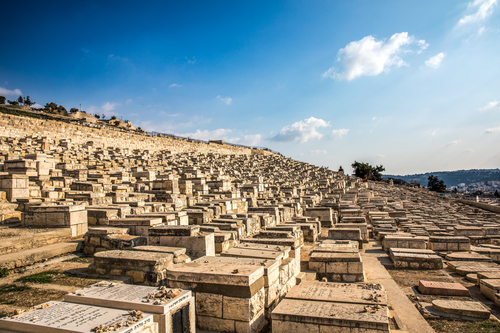“More than Grace and Peace” – Titus 1:4 – June 26 2020
/0 Comments/in Enduring Words for Troubled Times/by David Guzik“Put On Love” – Colossians 3:14 – June 25 2020
/0 Comments/in Enduring Words for Troubled Times/by David Guzik“Forgive As He Forgave You” – Colossians 3:12-13 – June 24 2020
/0 Comments/in Enduring Words for Troubled Times/by David Guzik“Christ Our Life” – Colossians 3:2-4 – June 23 2020
/0 Comments/in Enduring Words for Troubled Times/by David Guzik“Do Not, Do Not, Do Not” – Colossians 2:20-23 – June 22 2020
/0 Comments/in Enduring Words for Troubled Times/by David GuzikComfort Greater than Death
/1 Comment/in Weekly Devotional/by David GuzikBecause your heart was tender, and you humbled yourself before the LORD…. Surely, therefore, I will gather you to your fathers, and you shall be gathered to your grave in peace; and your eyes shall not see all the calamity which I will bring on this place. (2 Kings 22:19, 20)
The young king Josiah led a significant revival in the latter days of Kingdom of Judah. He had the zeal to repair and restore the temple, and as they did that work they discovered the forgotten book of the law – God’s word through Moses and other early books of the Old Testament.
When Josiah heard the message of those books he was immediately convicted of sin. It was plain how far they had gone from God’s path, and he tore his clothes and mourned as if someone dear to him had died. To his credit, Josiah didn’t stop at a feeling of sorrow, but went on to see what God’s word would say to him. They sought the prophetess Huldah, and she told him judgment was indeed coming on Judah for all their great sins against God and the covenant Israel made with Him.

That was bad news; yet there was good news in the midst of it. God made some comforting promises to Josiah, because his heart was tender. Josiah’s heart was tender in two ways. First, it was tender to the word of God and was able to receive the convicting voice of the Holy Spirit. Second, it was tender to the message of judgment from Huldah described in the previous verses.
Here was God’s comfort to Josiah: you shall be gathered to your grave in peace. It is true that Josiah later died in battle (2 Kings 23:28-30), there are at least three ways that this was true.
– Josiah died before the greater spiritual disaster and exile came to Judah.
– Josiah was gathered to the spirits of his fathers, who were in peace.
– Josiah died in God’s favor, even though it was by the hand of an enemy.
God’s comfort was added to Josiah when He said, your eyes shall not see all the calamity which I will bring on this place. This was God’s mercy to Josiah. His own godliness and tender heart could not stop the eventual judgment of God, but it could delay it. Inevitable judgment is sometimes delayed because of the tender hearts of the people of God.
I suppose someone could say, “What comfort was all this? Josiah died anyway, and judgment still came upon the Kingdom of Judah.” That objection forgets that it is our common destiny to die – no one can escape that. Yet, God may show mercy and kindness in both the timing and circumstances of our passing.
Josiah shows us that our humble repentance is never for nothing. God always finds a way to draw near to those who draw near to Him, and to bless those who seek Him.
Die Prophetin Hulda
/0 Comments/in Wöchentliche Andacht/by David GuzikDa gingen der Priester Hilkija und Achikam, Achbor, Schaphan und Asaja zu der Prophetin Hulda. . . Und sie redeten mit ihr. Sie aber sprach zu ihnen: So spricht der Herr, der Gott Israels: Sagt dem Mann, der euch zu mir gesandt hat: So spricht der Herr: “Siehe, ich will Unheil bringen über diesen Ort […]
La profetisa Hulda
/0 Comments/in Devocional Semanal/by David Guzik“Entonces fueron el sacerdote Hilcías, y Ahicam, Acbor, Safán y Asaías, a la profetisa Hulda… y hablaron con ella. Y ella les dijo: Así ha dicho Jehová el Dios de Israel: Decid al varón que os envió a mí: Así dijo Jehová: He aquí yo traigo sobre este lugar, y sobre los que en él […]




